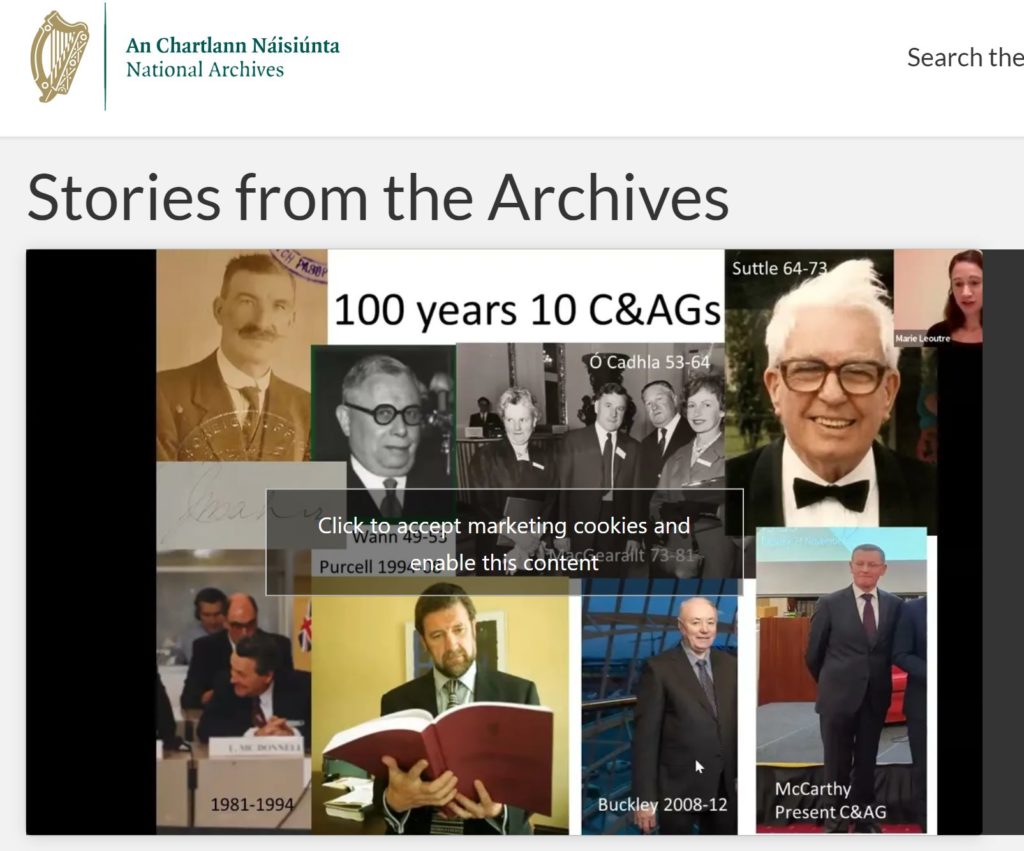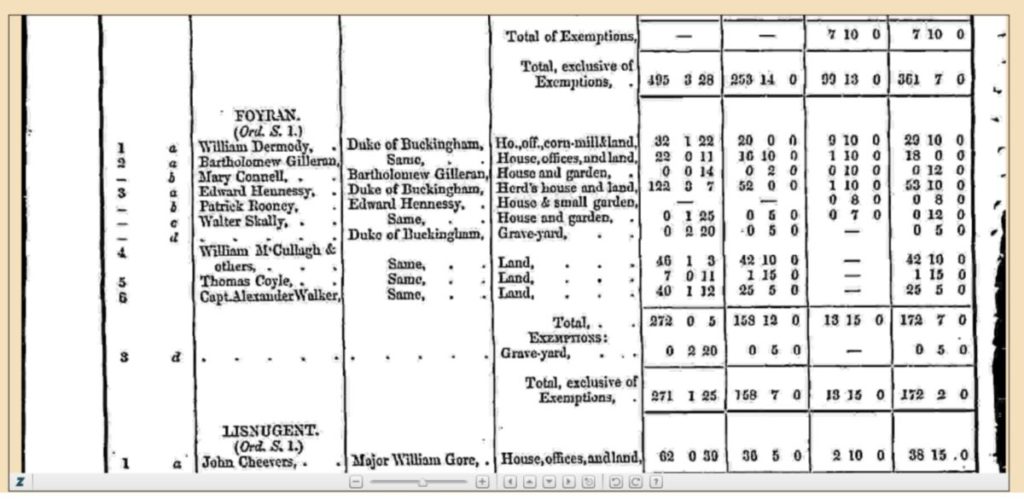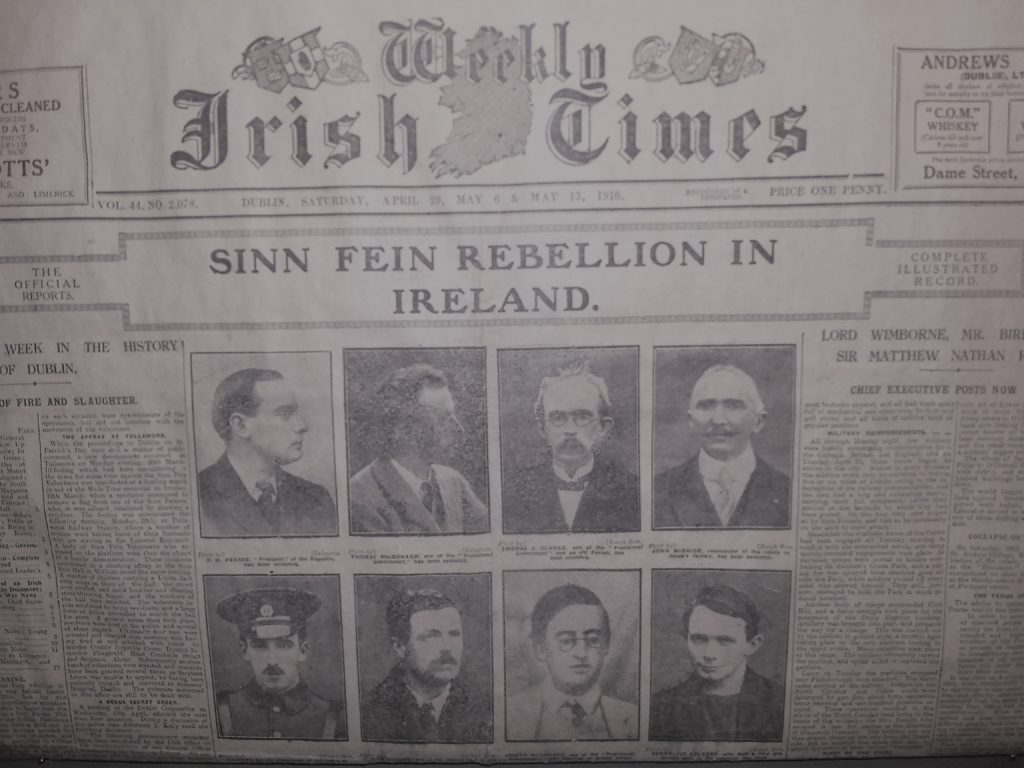Unearthing your family’s roots and finding your Irish Ancestors can be an exciting and fulfilling journey.
For those with Irish heritage, delving into their Irish ancestry can be particularly captivating, given the Emerald Isle’s rich history and cultural legacy.
While finding your Irish ancestors may seem like a daunting task, there are numerous resources available online that can assist you in your quest, and best of all, many of them are entirely free.
See how you can create your own photo family tree in minutes with 64smiles.
This guide takes you through 8 practical steps on how to find your Irish ancestors mostly free and all without breaking the bank.
Step 1: Begin with What You Know

Before you embark on your ancestral quest, gathering as much information as possible from your living relatives is crucial.
Start by talking to your parents, grandparents, aunts, uncles, and other older relatives who may hold valuable information about your family history.
Collect names, dates of birth, marriage records, and any further significant details. These initial pieces of information will serve as a foundation for your research and speed up your journey to find your Irish ancestors.
You might also be surprised by some of the skeletons in the cupboard that older relatives have kept to themselves for all those years – they can be pretty revealing.
Step 2: Find Irish Ancestors Through Online Genealogy Databases:

Free Irish online genealogy databases are valuable resources for tracing your trace their Irish ancestry and exploring your family history. These provide access to various records, such as birth, marriage, death, census, immigration, and land records.
To find your Irish ancestors, here are some excellent places to search:
- IrishGenealogy.ie is a free resource provided by the Irish government. It offers access to civil registration records of births, marriages, and deaths from 1864 onwards. The website also provides access to some church records, including Roman Catholic baptism and marriage records for selected areas.
- National Archives of Ireland offers free access to a selection of records through their website. This includes the 1901 and 1911 census records, valuable sources of information for tracing Irish ancestors (see below). The website also provides access to wills, land records, and other historical documents.
- FamilySearch is a free genealogy website maintained by The Church of Jesus Christ of Latter-day Saints. It provides access to a significant collection of Irish records, including civil registration indexes, church records, and census records. While not all records are available online, FamilySearch can be an excellent starting point for your research.
- Ireland Genealogy Projects Archives (IGP-web) is a volunteer-driven website that hosts free genealogical records and resources for various counties in Ireland. It includes transcriptions of church records, gravestone inscriptions, land records, and other valuable sources of information.
Step 3: Consult the Irish Tithe Applotment Records

Another great resource to help find your Irish ancestors is the The Irish Tithe Applotment records.
These are historical documents that provide valuable information about land and property holdings in Ireland during the early 19th century. These records were created as a result of the Tithe Applotment Act of 1823, which aimed to establish a more equitable system for collecting tithes, a form of taxation that supported the Protestant Church of Ireland.
Under the act, local assessors were appointed to determine the value of each landholder’s property and assess the appropriate tithe payment. The resulting records, known as Tithe Applotment Books, provide details on landholders, their addresses, the size of their holdings, and the amount of tithe or levies they were required to pay.
The Tithe Applotment Books cover rural areas of Ireland and are organised by civil parish, townland, and landholder’s name. They offer valuable insights into the socio-economic and agricultural landscape of the time, allowing researchers to study patterns of land ownership, occupancy, and cultivation.
These records are valuable for genealogical research, as they can help identify ancestors and establish their landholdings. They provide a snapshot of rural life in Ireland, allowing researchers to trace family connections, determine the economic status of ancestors, and explore the changes in land ownership over time.
Access to the Tithe Applotment records varies depending on the source. Some repositories, such as the National Archives of Ireland, offer online access to digitised documents, while others may require on-site visits or access through subscription-based genealogy websites.
Note that the Tithe Applotment records have limitations. They cover mainly agricultural areas, while urban and industrialised regions are often not included. The records also provide information about landholders and do not include information about tenants or laborers who did not hold land.
Step 4: Explore Websites Dedicated to Irish Ancestors:
Dedicated websites focused on Irish genealogy can provide valuable information in your quest to find your Irish ancestors.
We have already mentioned IrishGenealogy.ie and Family Search. Some other handy sites include when finding your Irish ancestors include:
- Irish Family History Foundation (IFHF) operates county-based genealogy centres in Ireland. Their website provides access to indexes and records from these centres, covering various counties. The IFHF network offers expertise and genealogical research resources, including access to parish records, census substitutes, and other historical documents.
- Dúchas.ie focuses on Irish cultural heritage, including folklore, oral history, and historical documents. It provides access to digitised collections, including the Schools’ Collection, which features stories and folklore from schoolchildren in the 1930s. While not exclusively a genealogy website, Dúchas.ie can provide valuable context and background information on Irish ancestors.
- Church records – many Irish ancestors’ births, marriages, and deaths were recorded in church registers. Irish Genealogy has a collection of church records available for certain areas.
- Local heritage centres and libraries often have resources, including historical records, maps, and local histories. These can be very helpful in tracing your Irish roots. Just Contact the relevant centres or libraries in the areas where your ancestors lived to inquire about available resources.
Step 5: Connect with Irish Genealogy Communities:
Joining online communities and forums dedicated to Irish genealogy can prove invaluable in your research.
Websites like Boards.ie and Irish Genealogy Research provide platforms where you can interact with fellow genealogists, seek advice, and share information.
Engaging with knowledgeable individuals with experience tracing Irish ancestry can provide insights and tips and even uncover previously unknown connections to your family tree.
Step 6: Explore Irish Newspaper Archives:

Irish newspapers have chronicled the stories and events of generations past. Online archives such as the Irish Newspaper Archive (INA) and Irish News Archive offer free access to their vast collections of historical newspapers.
Searching these archives might reveal birth announcements, obituaries, marriage announcements, and other significant family-related news that can help you trace your Irish ancestors.
Step 7: Find Your Irish Ancestors Via Online Gravestone Databases:
Gravestones can provide valuable information about your ancestors, including birth and death dates, family relationships, and even their birthplaces.
Websites like Find a Grave and BillionGraves, have extensive databases of gravestone inscriptions from various cemeteries in Ireland.
These resources can help you locate burial sites and gather further details about your family history.
These databases are GPS enabled, and you can contribute to them simply by taking pictures of old Irish gravestones on your smartphone.
Leverage Social Media and DNA Testing:

Social media platforms like Facebook, Twitter, and Instagram can be surprisingly valuable for genealogical research.
Joining genealogy groups or Irish heritage groups on these platforms can connect you with like-minded individuals who may have information or resources that can assist you in your search.
Additionally, considering DNA testing through services like AncestryDNA or MyHeritage DNA can provide valuable insights into your ethnic makeup and potentially connect you with relatives you were previously unaware of.
Step 8: Consult Local Libraries and Archives:
While online resources have made genealogical research more accessible, local libraries and archives still hold a wealth of information.
If you have specific information about your Irish ancestors, consider reaching out to libraries or archives in the relevant Irish counties.
Their local knowledge and collections may provide you with additional records, newspapers, or historical documents that could shed light on your family history.
A Note on Irish Census Records
While we have already mentioned accessing Irish census records, it is worth listing the various ways of accessing them for free.
- The National Archives of Ireland provides access to digitised versions of the 1901 and 1911 Irish censuses on their website. These records cover the entire island of Ireland. You can search by individual name, address, or other criteria to locate your ancestors in the census. The website provides both transcriptions and images of the original census forms.
- FamilySearch has a significant collection of Irish census records. While not all census years are available online, FamilySearch provides access to transcriptions and images of selected Irish census records. You can search by location or browse through the available collections.
- Local Libraries and Archives may hold microfilm or physical copies of census records. These resources may require on-site visits to access the records. We recommend you check with the specific library or archive to inquire about their holdings and access procedures.
When accessing Irish census records, it’s essential to remember that earlier census records from 1821 to 1851 were mostly destroyed, with few surviving fragments. The 1901 and 1911 censuses are the most complete and widely available. Privacy restrictions may apply for more recent census records, and access is generally limited to authorised individuals or specific research purposes.
It’s also worth noting that census records can provide valuable information about your ancestors, such as names, ages, occupations, relationships, and more. They can help you trace family members, understand household structures, and provide a snapshot of your ancestors’ lives during a particular period.
Perhaps Find Some Long Lost Irish Cousins

Tracing your Irish ancestors can be an engaging and rewarding endeavour. Even better when you come across some long lost cousins.
This will allow you to connect with your heritage and understand your family’s journey throughout history. You can piece together the puzzle of your Irish ancestry without spending a fortune by utilising the wealth of free online resources, engaging with genealogy communities, and tapping into various databases and archives.
However, a word of caution: while free resources are available, there may be limitations to what you can access without paying.
If you reach a point where you need more in-depth or specific records, you may need to consider utilising paid platforms or visiting local libraries and archives.
Nevertheless, leveraging the free resources mentioned here, you can make significant progress tracing your Irish ancestors and uncovering your family’s heritage.


